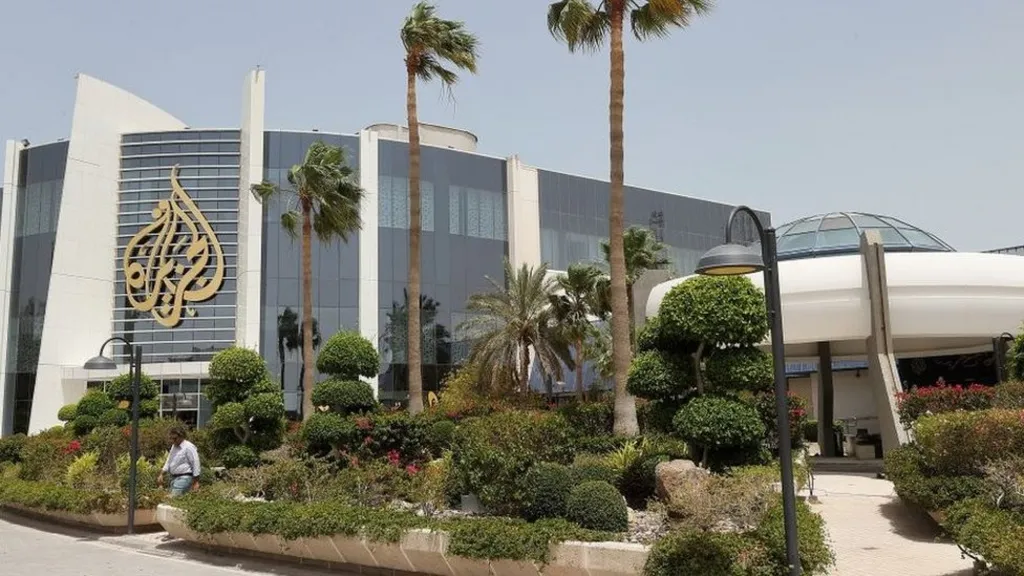The Israeli government under Prime Minister Benjamin Netanyahu and his Far-right allies has been growing authoritarian by the day, throwing to the winds that country’s democratic credentials. But, two days after World Press Freedom Day on 3 May, it has shown its intolerance of free speech and expression by unanimously banning the Qatari news channel Al Jazeera. This is a major onslaught on one of the pillars of democracy that has been exposing the brutality being perpetrated by Israel government on thousands of Palestinians hounded out of their homes in the Gaza Strip since the attack on Israel by Hamas 7 October, 2023. The media outlet has been prevented from covering the horrors in the name of national security. The world is getting information on the massacres in Gaza thanks, among a few others, to the journalists of Al Jazeera stationed there as all other international media has been denied access to the scene of depredation. The unacceptable measure comes at a time when reports suggest Israel is planning strikes on Palestinians in Rafah. This only gives rise to suspicion and fear about the deadly attacks to come that Netanyahu’s government does not want the world to see through Al Jazeera’s coverage. It is in this manner that dissemination of information on government functioning and wrongdoing – a key element of democracy – can be stopped.
While saying this, we must also accept that a country at war, any country for that matter, has to have stringent control over all media. It does not matter if the media is domestic or international. In Israel’s case, it is even more so since that nation has enemies or the ocean surrounding it. The Israel Defence Forces (IDF) has a tough job cut out for it. The pressure on them to get all the hostages back alive may have subsided somewhat but then the future of that nation is at stake in a manner it never was before. Netanyahu has everything at stake now. Not just his own political survival but also that of the government he heads currently.
This may be the reason for Netanyahu’s description of the media outlet as “terrorist,” and the closure of its offices on Israeli territory. Its equipment was also confiscated. Such practices may brand a government authoritarian as it does not tolerate any voice that is not pro Israel. Such acts may now get Israel included in the list of countries where cases of attacks on freedom of information pile up. In the past, the Israeli authorities made no secret of their mistrust of Al Jazeera’s openly pro-Palestinian editorial line, but they stopped short of shutting it out.
Releasing its World Press Freedom Index on 3 May, Reporters Without Borders noted that “more than half of the world’s citizens live in extremely dangerous places for press freedom, places where working as a journalist means risking your life or your liberty.” Five of the world’s 10 most populous countries are subject to this situation, particularly during election periods.
Among such victims the most notable is the Wall Street Journal reporter Evan Gershkovich held in Russia for over a year, awaiting trial on obviously trumped up charges of espionage. In Hong Kong, now under Chinese rule, Jimmy Lai, boss of former Opposition press group Next Media, is facing life imprisonment after a farcical judicial process. On 1 May, free speech advocacy organisation PEN America noted that the number of writers imprisoned in China exceeded 100 for the first time in 2023. This is only expected of an authoritarian system.
On 3 May, Subhash Chandra, the owner of Zee Television and the man who brought the first Indian satellite television channel to homes in this country, surprised many by releasing a video statement mentioning the dangers that lay for freedom of the press. What was surprising was that Chandra was known to be close to the powers that be and his channels always sang paeans to the current brand of politics in India. Yet the very mention of that issue by him seemed to have a deep meaning. Such events never go unnoticed, demonstrating that India too is going through a period where media is being gagged.
Blocking the flow of information on what is happening around the globe is a challenge to defenders of democracy and a danger to the survival of any open and modern society.
